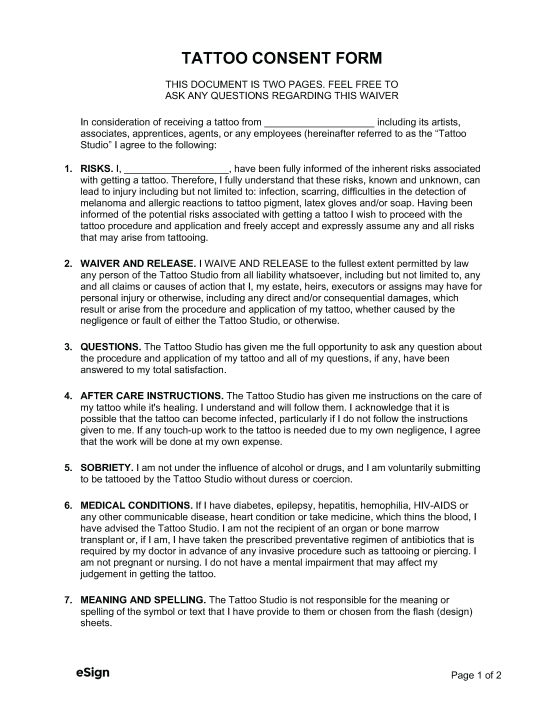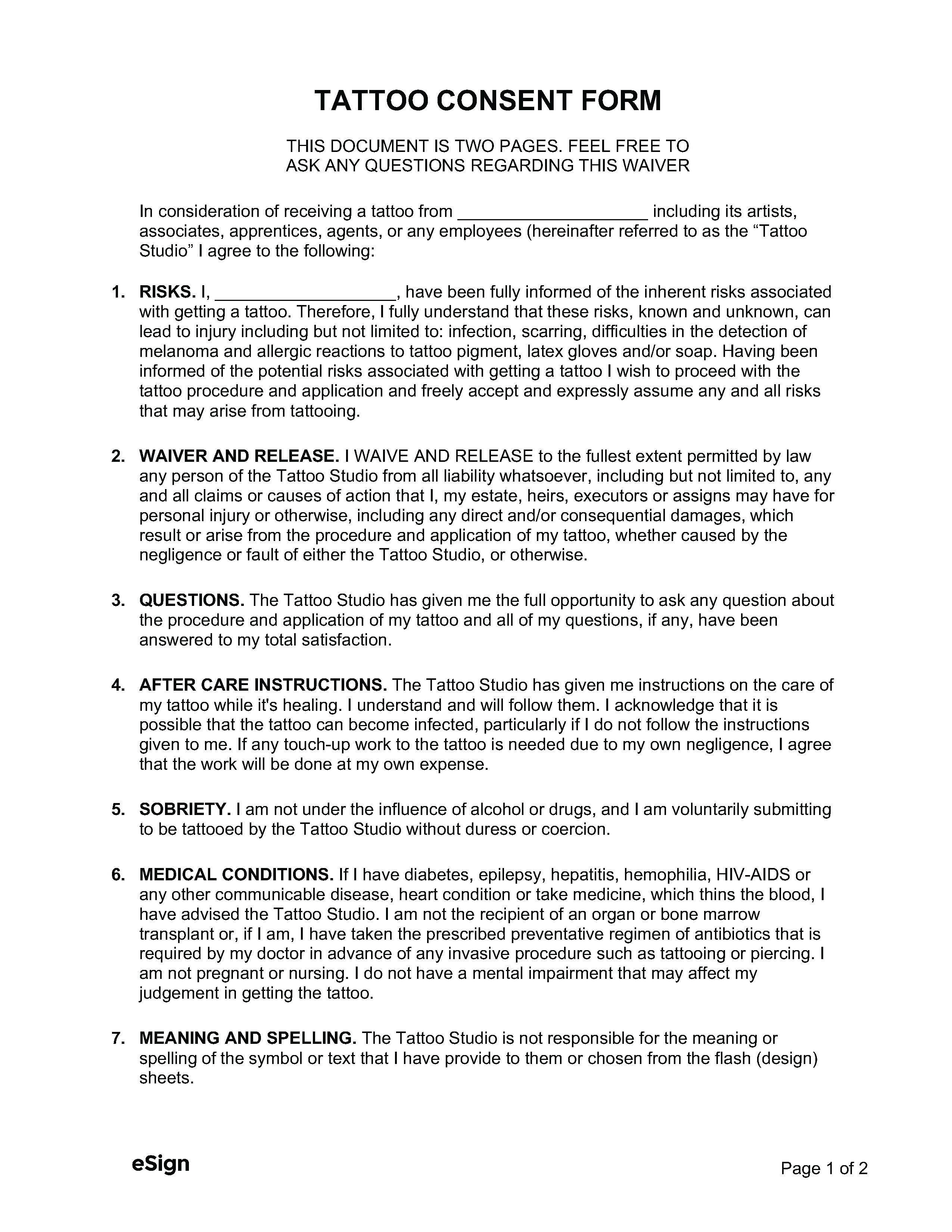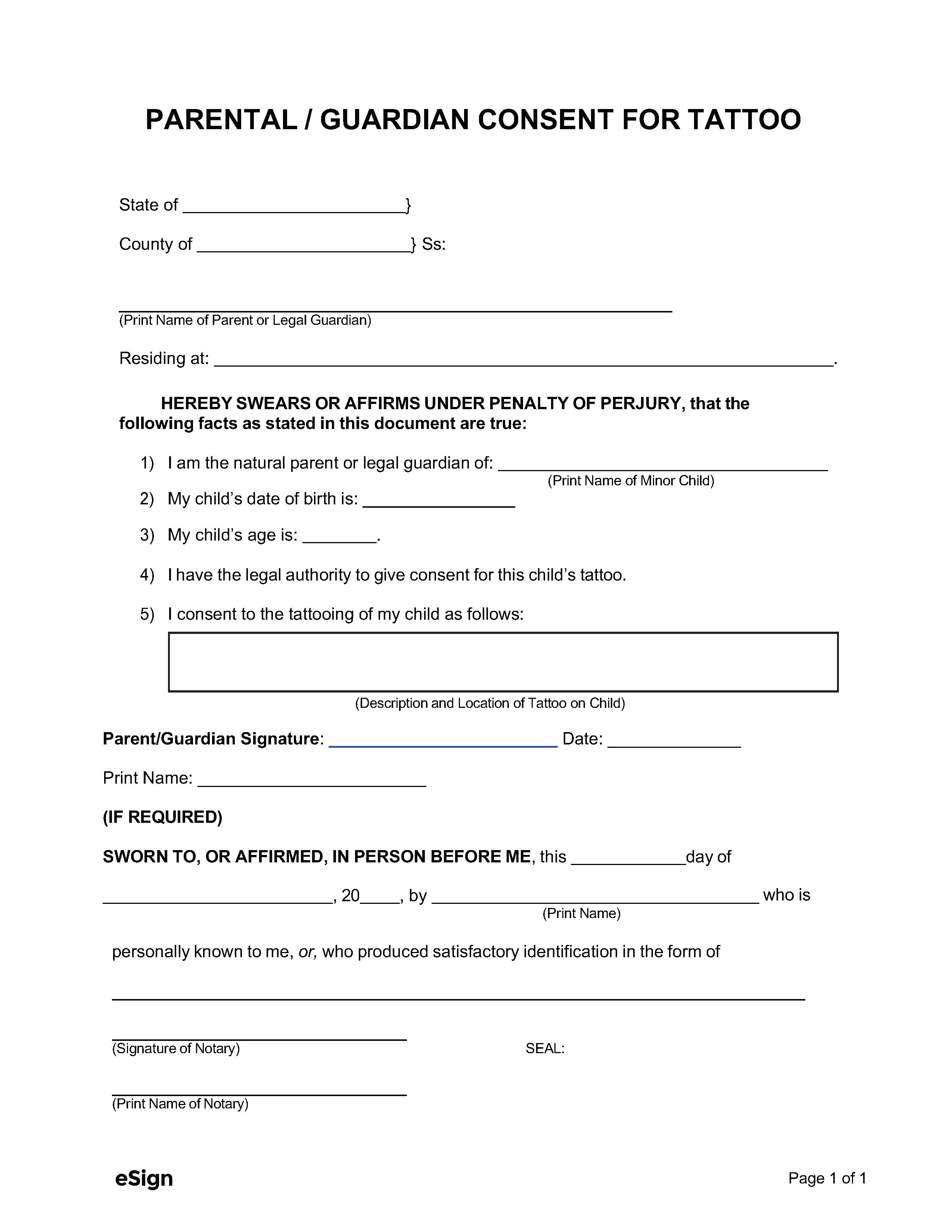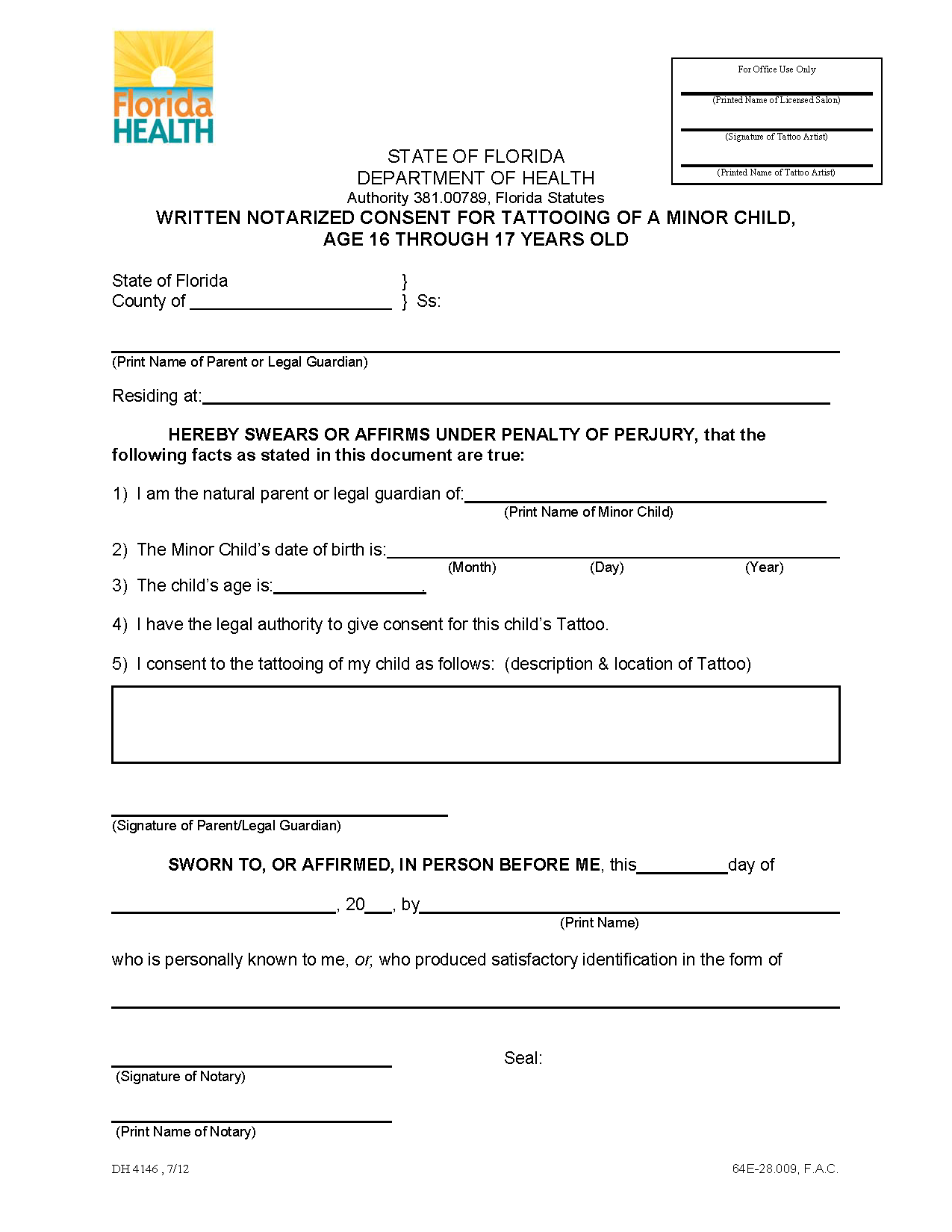By Type (3)
Tattooing Minors
Some states allow minors to be tattooed with the permission of a parent or guardian, while others forbid it except for medical necessities. The tattoo artist/studio should ensure they are up to date with state laws before tattooing any minor.
Important Essential Terms
Risk Assessment
The client must acknowledge that despite the tattoo artist’s best practices, tattooing comes with certain risks, and they must accept those risks before moving forward. Common risks associated with tattooing include:
- Infections
- Scarring
- Allergic reactions
- Blood diseases
- Granuloma
After Care
The tattoo artist should provide the client with instructions on how to care for the tattoo after the session. The client acknowledges with the form that they have received these instructions, and if they don’t follow them, the tattoo can be more prone to infections.
Tattoo Expectations
The client agrees that the colors and design of the tattoo may differ from the art they selected once applied to the body. They must also acknowledge that tattoos are permanent, and the studio is not responsible for any meanings or spellings provided to them.
Medical Conditions and Sobriety
It is essential the client certifies that they are not under the influence of drugs or alcohol and is getting the tattoo of their own free will.
Additionally, the client must inform the tattoo artist of any conditions or medications that may interfere with the tattoo and its healing or put the tattoo artist at risk. Some conditions to be noted are:
- Diabetes
- Epilepsy
- HIV-AIDS
- Heart conditions
- Blood conditions
- Pregnancy
Tattoo Waiver and Release
It is important to include a clause that states that the client accepts the risks associated with getting a tattoo and will not hold the tattoo studio liable for any injuries that could occur.



